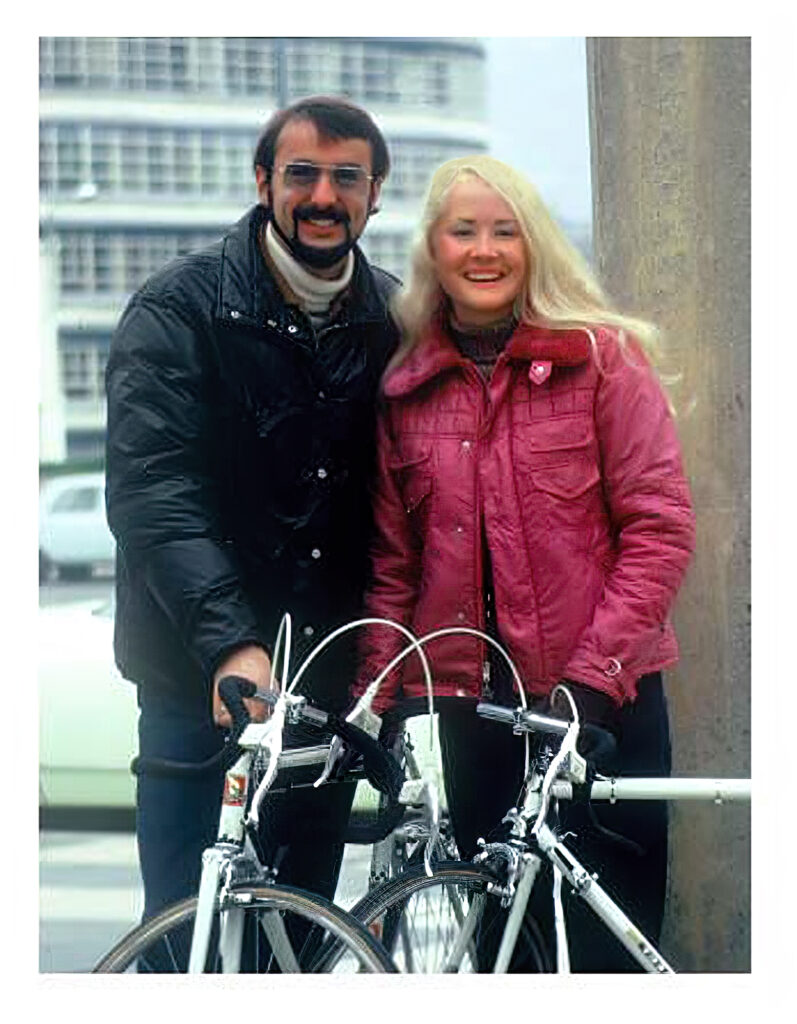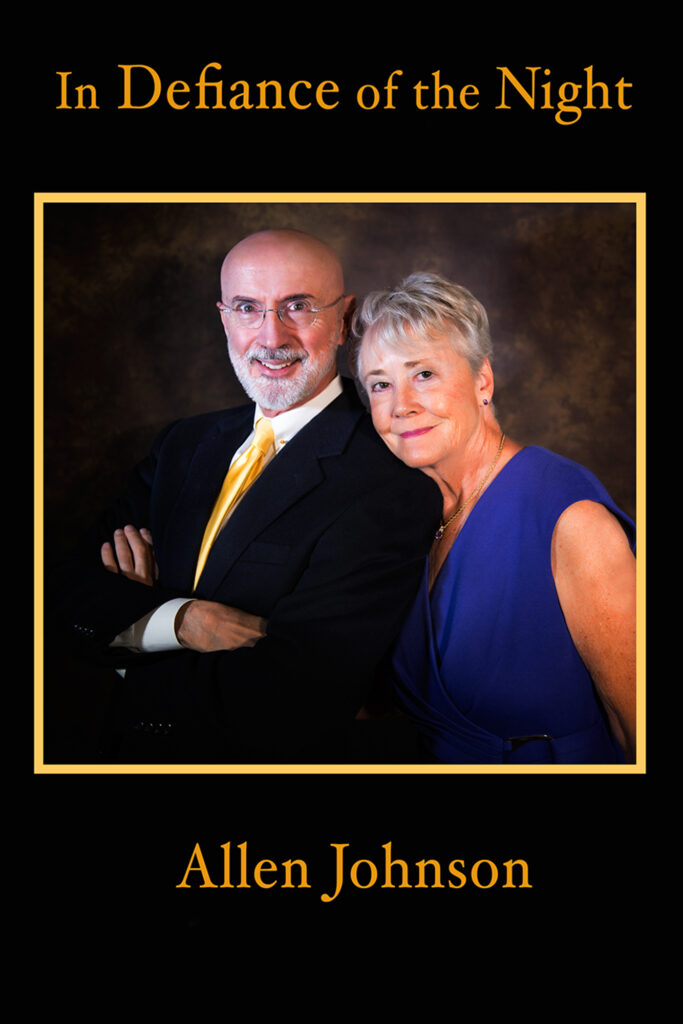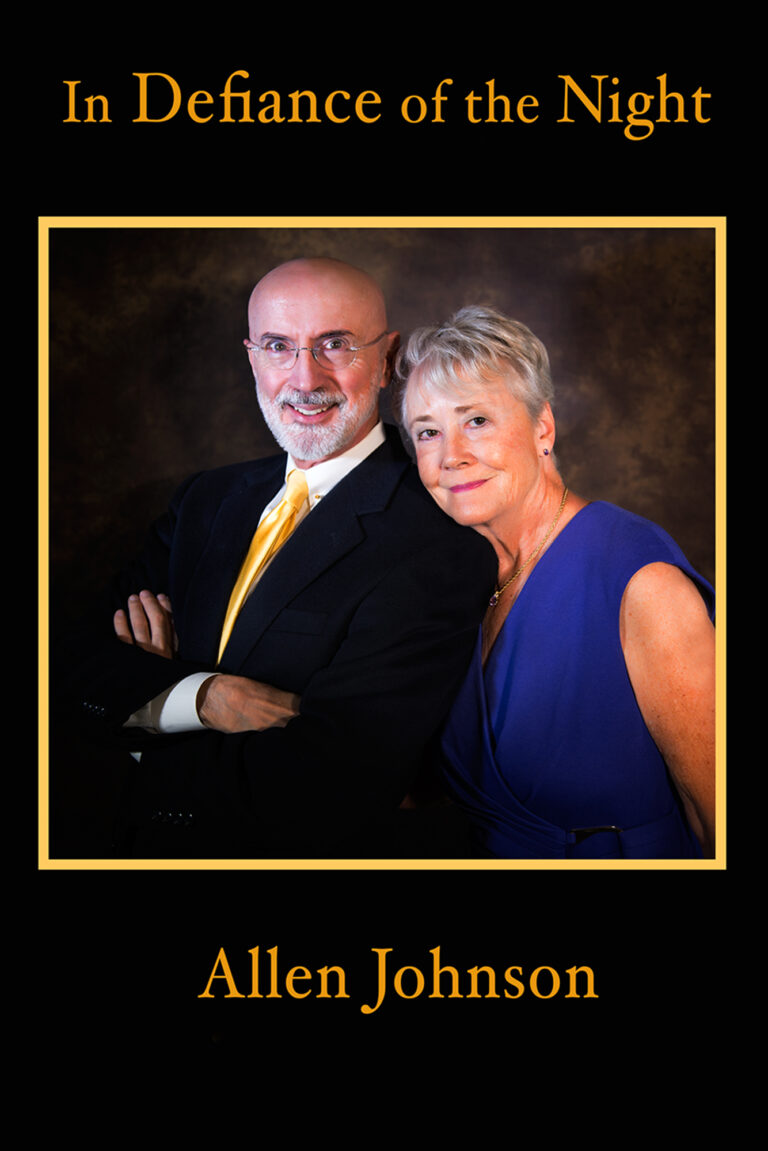The lion share of this narration has been about my grievances and challenges. That’s probably natural. I see the world as viewed from inside my skin. But I would be remiss if I did not relate a bit more about the woman I love.
From the beginning of our marriage on December 24, 1968, Nita has been a trooper. For some miraculous reason, she has been in love with me every day of our lives—despite my pesky flaws and drowsy virtues.
In the early years, I expected Nita to be passionate about everything I loved—including water skiing. What I did not know then, and what my bride did not divulged until decades later, was that Nita defined swimming as “staying alive in the water.” Mind you, she enjoys looking at water from a distance, especially when the retiring sun casts it’s last ribbons of gold across a lake, river, or ocean wide. She even dares to dampen her feet along a beachline where the water advances and soaks into the sand.
But when I buckled skis to her feet at the end of the dock at Sacagawea Park in the first summer of our marriage, I knew something was amiss when I looked into her eyes.
“How ya doin?” I asked.
I won’t say there was fear in her eyes. I’d call it apprehension…no, dread…okay, terror.
In my defense, I knew that everyone is nervous about a new venture. But with time and hard work, panic evolves into self-confidence. Unless you’re burdened by a raving chromosome that rails, “Not in this life or any other life, you schmuck!”
I learned that when I eased the throttle forward. Nita was up for one spectacular moment when—perhaps suspecting the Snake River was deeper than her chin was high—she tipped over, splayed her skis, and, incredibly, clutched the tow rope. Before the boat coasted to a stop, only her eyes were above the waterline. A raw observer might say her stare resembled an alligator stalking a muskrat. But that would be inaccurate. She appeared less like the predator and more like its prey—scared witless.
Despite the experience, Nita never complained. Nor did she say she would never do it again—although I lost the heart to invite her.

Throughout our marriage, Nita was intent on pleasing me. She would be up for anything: hiking, jogging, playing basketball. But her courage did not stop there. For a solid year, she and I rode Peugeot bicycles in Grenoble, France, dodging French motorists who thought of themselves as Grand Prix racecar drivers. In the following two years, she taught English as a foreign language in a mountain-village high school in Northern Algeria—all of her students boys. And although she was treated with respect, that too was a leap from teaching five-year-old Americans to teaching eighteen-year-old Berbers.
My point is Nita is one courageous soul. But her character goes deeper than that.
***
In all our years together, I’ve never heard Nita raise her voice in anger. I’ve never seen her roll her eyes in contempt. I’ve never caught her arch her back in arrogance. Nor have I ever seen her proselyte a nonbeliever. Not in Europe, not in Africa, not within the four walls of our home. Not ever.
I’ve always wondered what made her so decent, so annoyingly virtuous. To answer that question, I turned to her family life. Her parents, John and Esther Astleford, were Quaker missionaries in Chiquimula, Guatemala for forty years. Nita was born and raised there until she was fifteen. Her high school years followed in Wenatchee, Washington, where she and her sister lived with her aunt and uncle—the latter of whom was a Methodist minister. Later, Nita graduated from George Fox, a Quaker University in Newberg, Oregon.
While researching Quakerism, I came across a quotation by Richard Tuckett, an emeritus professor and Quaker chaplain at the University of Birmingham in England. His description of Quaker faith sounded a lot like Nita’s character. Here’s what he wrote in a 2020 article entitled “What Do Quakers Believe?”
“Quakers seek to experience God directly, within ourselves and in our relationships with others and the world around us. Quakerism is a way of life, rather than a set of beliefs. It has roots in Christianity and many Quakers find the life and teachings of Jesus inspirational, but we have no creed. Quakers today do not look any different from other people, although we try to avoid extravagance and excess. Our inner experience leads us to be committed to equality, peace, simplicity, and truth—all of which we try to live out in our lives. The only universal belief is ‘there is that of God in everyone’; there is no definition of what the word God means, and many now use the word ‘Spirit’ or ‘Light.’”

Further research confirmed Tuckett’s ideas. Strikingly, modern Quakers often use the acronym SPICE for simplicity, peace, integrity, community, and equality.
So, on one of our morning walks, I asked Nita if she thought she was influenced by her Quaker upbringing and education.
“Of course,” she said.
“In what way?”
“It taught me to be tolerant of all people: to listen wholeheartedly—not to manipulate but to understand.”
There’s a whole lot of SPICE in that principle.
***
If I were pressed to select only one word from SPICE that captures Nita, it would be “peace.” She is at peace with all things—with me (thank goodness), with the onslaught of dementia, with the reality of her own mortality.
Because we could not find the cause of Nita’s forty-pound weight loss, we scheduled a PET scan of her chest, abdomen, and pelvis in search of cancer. None was found. Still, we thought it prudent to consult with a gastroenterologist. The conversation was instructive and revealing of Nita’s spirit.
“The PET scan showed no sign of cancer,” Nita began.
“That’s not definitive,” the doctor said. “Really, an upper endoscopy and a colonoscopy are critical to be absolutely sure.”
“What’s an upper endoscopy?”
“It’s the procedure used to examine the lining of the esophagus, stomach, and upper small intestine.”
Nita scarcely raised her eyebrows. It was a minute reveal, but I caught it.
“Do you still have to drink a gallon of chalk for the colonoscopy?” I asked.
“I’m afraid so,” the doctor said.
When Nita spoke, it was timidly, her voice hushed, her gaze gentle. “What happens if we find cancer somewhere in my body?”
Not one to pull punches, the doctor wasted no time. “It means surgery followed by chemo or radiation or both.”
Nita and I exchanged a glance. We were both thinking the same thing. There was no way Nita would be willing to tolerate the treatment, and we told the doctor as much.
“It would be different if we were in our forties,” I said.
“We’ve always accepted our mortality,” Nita added. “My mind and body are not capable of taking on the treatment.”
“Then there’s no reason to explore?” the doctor asked.
“No reason at all,” Nita said. “And I’m completely at peace with that decision. In fact, I feel a sense of relief in clarifying where I stand”—she glanced at me—”where we stand.”
“I can’t argue with that,” the doctor said. “It’s reasonable and moreover your perfect right.”
Nita resettled herself higher in her chair and smiled. “But doctor, I want to thank you so much for being honest and deliberate and respectful.”
I was fully in Nita’s camp. “If this gastroenterology thing doesn’t pan out for you, doc, you might want to consider psychiatry. I think you’d be a natural.”
Although the doctor smiled, he dismissed the compliment with the wave of his hand.
As we left the clinic, I nodded to myself. Whatever the subject—Parkinson’s, dementia, the end of life—Nita was always a model of peace.
***
You might be thinking, “Of course, Allen, you would speak kindly of Nita. You’re married to the woman.”
Not so fast. My praise is not gratuitous. I know virtue when I see it; Nita has it, and I’m still searching. For example, I don’t suffer fools gladly. If people are not up to snuff, I’ve been known to set them straight —usually with measured language but no less compelling. In contrast, Nita has no compulsion to fix others. She stays focused on her own salvation.
For over a half century, I’ve recognized and acknowledged Nita’s greater depth of spiritual grounding. She is genuinely good. So forgive me if I give credit where credit is due. To be silent would be a travesty of the spirit of the woman I love.
The eighteenth-century English nursery rhyme pretty much nails our differences. Nita is made of “sugar and spice and everything nice,” whereas I’m made of “frogs and snails and puppy-dogs’ tails.”
Errr-ribbit.
***
EXTRA: To see and hear Nita speak about her extraordinary father, click HERE.



